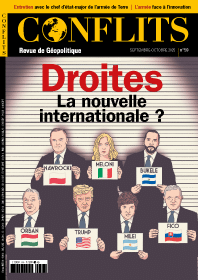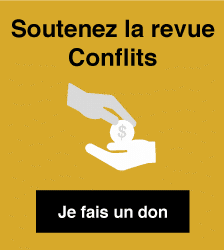Yacoub Sidya heads MSS Security and Global Aviation, key companies for secure mineral transport in Africa. As discreet as he is efficient, he stirs up plenty of envy among competitors. Portrait of a man who rarely speaks to the media.
On January 25, at dawn, Yacoub Sidya flew to Dubai, turning the page on several tumultuous weeks in Guinea. His arrest in the case of the disappearance of four tons of gold from the Central Bank of Guinea (BCRG) raised questions and speculation, thrusting into the spotlight an entrepreneur whose influence extends far beyond his native Mauritania. A key figure in West Africa’s mining sector, he was released without charge, and the case was ultimately closed by the Guinean authorities. Yet, in an environment where business and politics dangerously intertwine, he remains a target.
In Conakry, Bamako, and Ouagadougou, his name leaves no one indifferent. At the helm of MSS Security and Global Aviation, he orchestrates one of the most structured secure mineral-transport networks in the region. Essential to mining companies, he is for some an indispensable partner, for others a formidable obstacle.
A meteoric rise
For more than fifteen years, Yacoub Sidya has built an empire by securing the transport of gold, bauxite, and other strategic minerals, ensuring their journey from extraction sites to export platforms. In a region where the trade in natural resources has become a sovereignty issue, his command of the logistics chain has allowed him to establish himself as an indispensable player.
“Without secure logistics, companies simply cannot operate. The risks are too high. That’s what makes MSS Security’s added value,” says an executive at a mining group operating in West Africa.
But transporting gold through high-tension zones also means operating in a world of shifting alliances and diverging interests. Behind the official framework of concessions, the influence networks of the extractive sector follow more opaque dynamics. By imposing himself on this landscape, Yacoub Sidya has inevitably made enemies.
Targets and rivalries in a strained market
From the moment Yacoub Sidya was arrested in Guinea, rumors flew. On social networks and in certain media, a wave of accusations followed: embezzlement, money laundering, collusion with opaque financial circles. Allegations often unverifiable, amplified by actors with every interest in engineering his downfall. One of the most active outlets in this offensive was the site Dialogue, which multiplied hit pieces against the entrepreneur. According to several sources, this media campaign was no accident.
“Sidya ruffles feathers. He’s imposed himself in a market where established players don’t want newcomers. Some would love to take over his contracts, and even political figures covet his network,” analyzes a security consultant specializing in the region.
The mining sector is a field where economic interests collide head-on with political ambitions. The military regimes in Mali, Burkina Faso, and Guinea are seeking to tighten their grip on natural resources, which includes revisiting concessions granted to private companies.
“In mining and mineral transport, you don’t cast a shadow with impunity,” confides a source close to the matter. “In these unstable political contexts, alliances can flip overnight.”
In Guinea, several influential figures would welcome a reshuffle of mining logistics to their benefit, and January’s judicial episode may well have been a warning.
“Some actors within the state apparatus want to bring forward alternatives under their control,” explains a source close to Conakry’s business circles. “But replacing a structure with a proven security track record carries risks.”
When influence unsettles
Disinformation campaigns and targeted attacks are not uncommon in the mining sector, and Yacoub Sidya has been a recurrent target. In 2014, the interception in Dakar of one of his aircraft carrying several million euros immediately fueled suspicions of money laundering, before the case was dropped. In 2018, similar accusations circulated via anonymous online channels, before being discredited by independent audits.
“It’s a well-worn script,” observes a sector specialist. “The slightest shadow—however minor—is exploited and amplified by those who benefit from sowing doubt.”
The Guinean affair fits this influence playbook. Yacoub Sidya left Conakry without any conviction, but the media offensive against him left its mark.
“In these strategic sectors, perception matters as much as reality,” explains a Dubai-based financier. “A company can be fully compliant, but if a rumor snowballs, it can weaken operations.”
Anticipate to endure
In a Sahel upended by regime changes, the rules of the game are evolving at speed. The military juntas are seeking to tighten control over the mining sector, while international banks are raising compliance requirements for precious-metals flows.
This two-way pressure creates opportunities for some and heightened risks for others. For Yacoub Sidya, the challenge now is to consolidate his alliance network and strengthen the traceability of operations to prevent fresh attacks on his integrity.
“He got through this ordeal, but he knows other tests lie ahead,” says someone close to the entrepreneur. “In this sector, letting your guard down is not an option.”
As international pressure on the gold trade intensifies and new African authorities seek greater control over their resources, Yacoub Sidya must juggle on several fronts: protecting his image, maintaining strategic relations with governments, and adapting to new financial-regulation standards.
Now based partly in Dubai, he runs his businesses with the same caution. His gold-refinery project in Conakry, estimated at $30 million, could reposition Guinea as a key player in local refining. But in an environment where power balances are constantly being reshaped, his future will depend as much on his ability to adapt as on his resilience to the attacks targeting him.
“His asset is his sense of anticipation,” a close associate notes. “He knows the framework is shifting, and he adjusts his strategy accordingly.”







